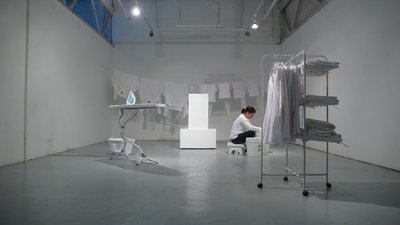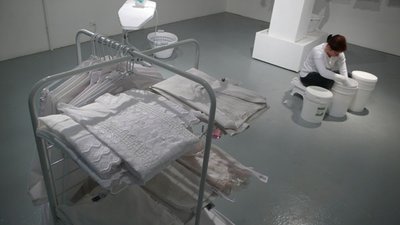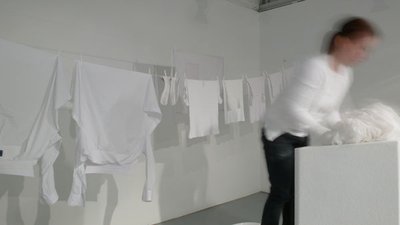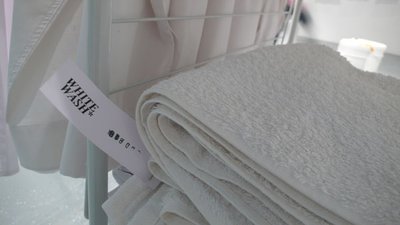White Wash
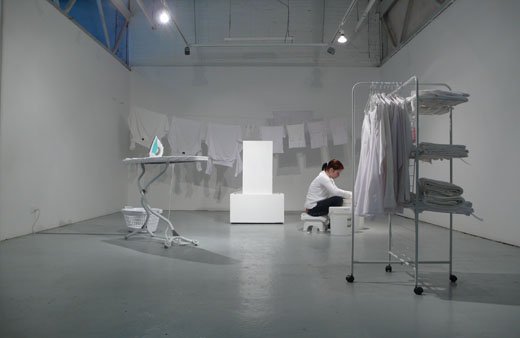
White Wash employs the gallery space as a laundry where clothes and linen from the surrounding community are washed and ironed. Where possible, the process is done by hand, the artist using only buckets, a washing stone, brushes and soap.
The exhibition is organised into sections reflecting the different laundering processes. Clothing is submitted and a classification system is used to sort and register each item objectively. Then the washing process begins with the requirements depending on the quality and nature of each item: soak, soap, scrub, rinse, starch, dry and press.
Conceptually, White Wash deals with the integrated relationship between art and everyday activities. The little art of washing is played out in the gallery space to explore and encourage fierce concentration on the sensory experiences of such a routine. In this manner, the gallery may be positioned alongside sacred spaces like churches and temples, and the act is sublimated into something as distinctly spiritual as religious ritual or worship.
The indiscriminately sourced collection of white clothing becomes a concentrated collective—unified and intimate in its vast materiality. Through an exclusive use of the (non-)colour white, and the systematic ordering of various material qualities, a dispassionate sense of unity and purity emerges. The consecration of the washing actions reminds us that our surreal, spiritual nature is present in even the most basic and mundane aspects of our own physical and material realities.
The artist has recently returned home to Tasmania after six months in India. During her stay, it became apparent that seemingly secular everyday activities of the people were often as devotional, or spiritual, as they were practical. Oneness of the 'very-worldly' and the 'other-worldly' has since emerged as the artists primary concern.
The subject of laundry came into focus as the artist noted that India seemed to maintain a disparate multitude of centuries at one time—despite some world-class achievements and modern-day aspirations in the larger cities, much of the population still washes their clothes daily, by hand, on rudimentary washing blocks; many can be seen scrubbing meticulously by the roads edge.
- address
-
InFlight Elizabeth Street
237 Elizabeth St, Hobart TAS 7000 - artists
- Philippa Steele – Artist
